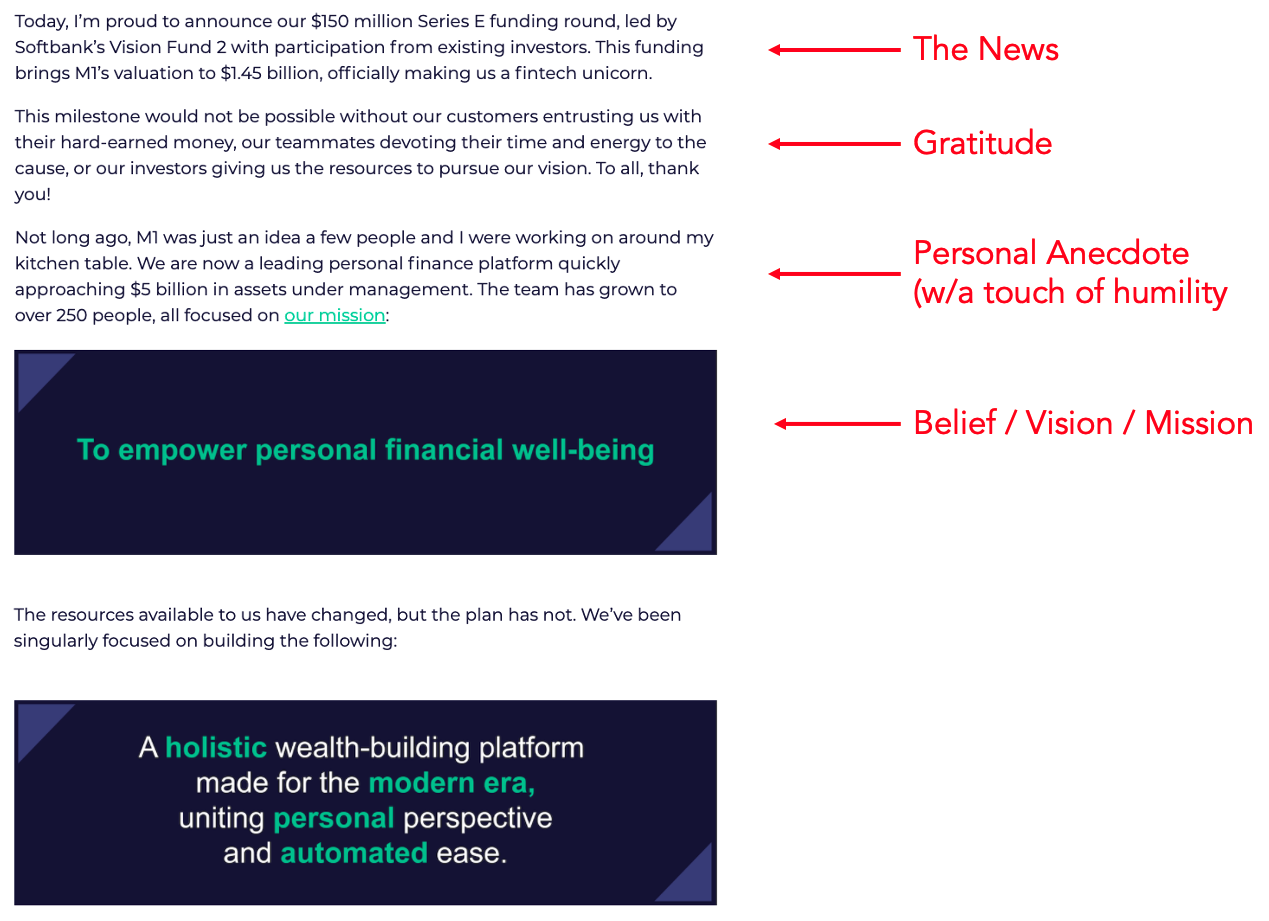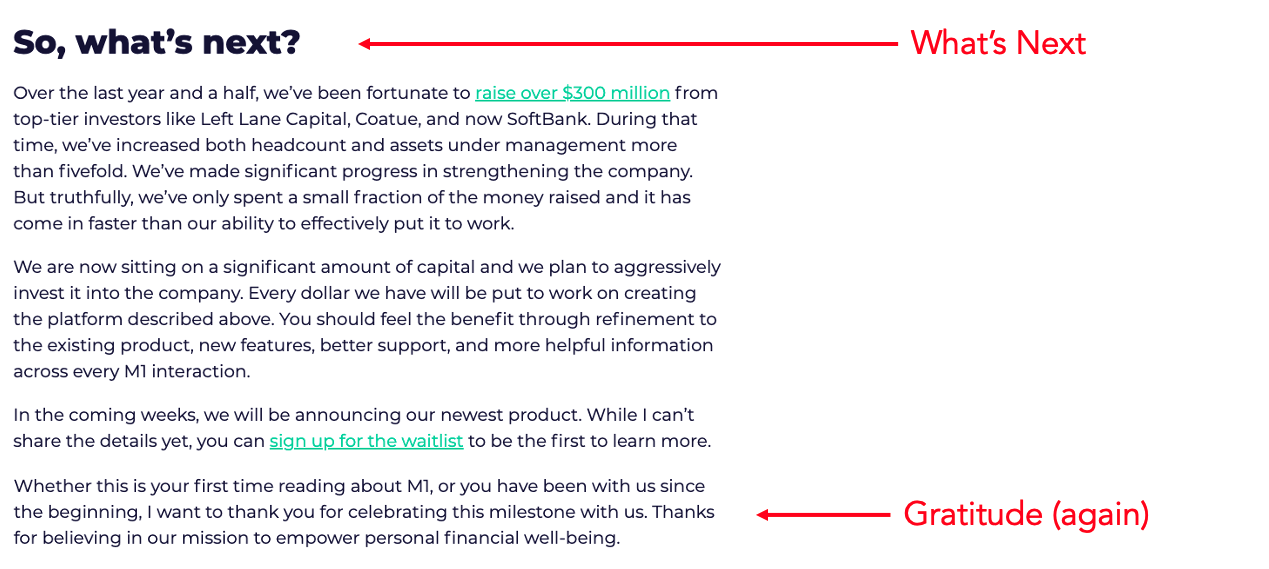The 7 Things that Should Be in Every Founder Letter

In the first days of a startup, founders do it all. They build. They hire. They raise money. They plan. They network. They sell (hopefully). They even write, whether that’s blog posts or shareholder emails or marketing strategy.
But as their startups find success, founders have to stop doing it all. They have to hire skilled and specialized talent into each of those roles. Ideally, through this process they pass their DNA to their new hires so that their original vision and ethos remain strong across the company.
Inevitably, however, as their startup grows and new voices come in, the brand becomes less a reflection of the founder and more one of its people.
But there are times when the clarity of the founder’s voice is critical. When that’s the case, you want a Founder Letter.
The founder letter (maybe emailed, maybe posted to the blog, maybe handed out as a physical copy) makes the recipient – employees, customers, investors, or partners – sit up and take notice.
When Should You Write a Founder Letter?
You should send a founder letter whenever something big and notable happens with your startup.
Hopefully that big and notable thing is positive. Like a new venture round, hitting $1m ARR, winning a big award, or hiring a big-time CTO.
But sometimes it’s not so good. Your software went down. You were hacked. A key member of the team left.
Regardless of whether the news is positive or negative, it’s critical that people take notice, so a message from the founder is the right thing to do.
The Elements of the Perfect Founder Letter
We don’t believe there should be a template for a founder letter. After all, the point here is authenticity and connection (if it weren’t, you could just have your marketing team post something).
However, the best letters have certain elements that help them stand out (a big thank you to long-time client / old friend Lou Friedmann, whose feedback on founder letters was valuable in creating the list below):
1. Personal Anecdote
A personal letter from the founder should be, well, personal. Tap into your personal experience to connect with your readers at a more emotional level and to demonstrate the importance of what you’re sharing. The connotation here is that because you are sharing a meaningful anecdote of your life, then this too must be a meaningful moment. A couple examples? "My mom was my greatest mentor..." or “I had a teacher in college who changed everything for me...”
2. Gratitude
Whether you’re sharing good news or bad, a little gratitude goes a long way. When things go well, be grateful to those who made it happen – employees, customers, investors, partners, friends, family, etc. When the news is bad, be grateful to those the news has affected – for their patience, business, trust, determination, etc.
3. The News (duh)
Oh right – your letter is announcing something! It’s ok to begin your letter with a quick anecdote or a review of what’s led to your letter, but don’t beat around the bush. State the reason for the letter clearly and concisely.
4. Humility
No one likes false humility, so if you’re not feeling humble about your news, then please skip this one. However (maybe because we have so many Midwest clients) humility is a very real emotion to us. If you’re sharing great news, acknowledge your fortune and privilege in being able to achieve it. If you’re sharing something bad, acknowledge your shortcomings.
5. Vulnerability
Just as humility speaks to us as Midwesterners, so too does vulnerability. In the TED talk that launched her into the popular culture and which helped define Ted Lasso, Brené Brown says vulnerability is “uncertainty, risk, and emotional exposure.” In short, it means acknowledging you don’t have all of the answers, and that honest, heartfelt approach will help you connect with your audience.
6. Belief / Vision / Mission
Your letter is ostensibly to share news – good or bad – with your audience, but it’s really a chance to publicly affirm and commit to your beliefs, vision, and mission. In short, you’re saying, “We built our startup on the belief that X deserved a better Y, and this news only strengthens our mission and clarifies our vision.”
7. What’s Next
It’s well understood in crisis management that you need to clearly state the path forward. You acknowledge the problem, describe its impact, and then overcorrect going forward. But this same approach can be used if you’re sharing something positive. Don’t just stop at the good news, like a funding round or an acquisition or a new milestone. Tell people what’s coming next.
Want to see some of these elements in action? Take a look at this excellent letter by M1 Finance founder Brian Barnes, in which he shares news of their latest funding round. I’ve also included an annotated version below.
Any questions about founder letters? Hit me up.





